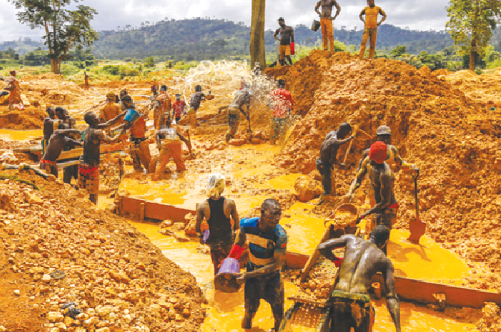
Working towards improved access to water, sanitation
Once again, Ghana joined the rest of the world on Wednesday to mark this year’s United Nations (UN) World Water Day (WWD).
The annual event focuses attention on the importance of universal access to clean water, sanitation and hygiene (WASH) facilities in developing countries.
The day also focuses on advocating the sustainable management of freshwater resources. Activities marking the day included a flag-raising ceremony and a stakeholder engagement which deliberated on the theme: “Waste water treatment and the re-use in Ghana: Prospects for sustainable development”.
Water, indeed, is health and essential to survival, as it is estimated that it is possible to live up to two months without food but less than a week without water.
Sadly, it is estimated that a whopping 748 million people still do not have access to improved sources of drinking water. So for those people, the theme may not be apt, for how can they save something they do not have?
In Ghana, it is estimated that more than four million people don’t have water, while some communities have to share their sources of water with their livestock.
There is a strong correlation among water scarcity, unclean water and disease and this makes it critical to improve accessibility to promote good health.
Yet most economic ventures or activities do not value the essential services provided by freshwater ecosystems, resulting in unsustainable use of water resources and ecosystem degradation.
In Ghana, The Mirror can cite the pollution with careless abandon of water sources by illegal miners as a typical example of how the insatiable quest to eke out a living negatively impacts the environment.
With the onset of the rains, many are praying against a repeat of what happened in 2014 when the nation lost hundreds of lives to cholera, attributable to insanitary conditions and the use of unclean water.
We must protect and preserve water bodies and develop positive attitudes towards the environment in connection with day-to-day sanitation practices to promote good health and national development.
The Mirror re-emphasises the need to ensure that no one is denied access to potable water according to their needs. Water must be safe to drink and available on a sustainable basis.
Gone are the days when sanitary inspectors breathed down the necks of householders to check against insanitary conditions. Is it possible to re-introduce that scheme, while we ensure regular, daily cleaning of streets and gutters by paid sanitary workers?
It is also worth pointing out the fact that we have to take a firm decision on the use of plastic, which many believe has greatly contributed to the filth due to its non-degradable nature.
Protecting our environment is a responsibility we all share. We must not lose sight of the fact that the environment exists to serve our sustenance. It, therefore, behoves all to ensure its protection and make it self-sustaining and safe.
Certainly, this goes beyond a day’s event.
